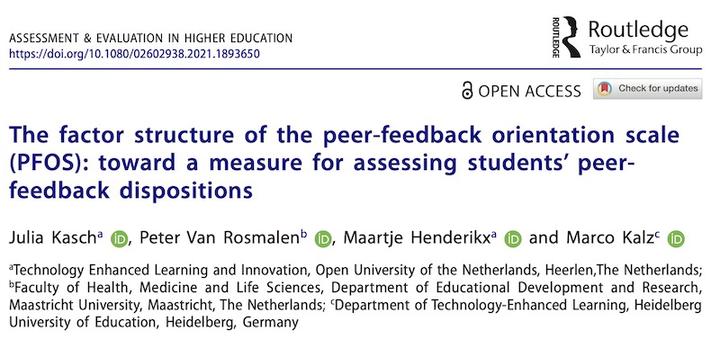The factor structure of the peer-feedback orientation scale (PFOS): toward a measure for assessing students’ peer- feedback dispositions

Abstract
This study reports on the quantitative findings of an exploratory sequen- tial mixed methods study in which the underlying factor structure of students’ peer-feedback orientation (i.e. openness to provide and receive peer-feedback) was investigated. Building on the qualitative findings of a previous study in which the ‘peer-feedback orientation’ concept was introduced, an online survey was developed to collect data among higher education students (N=148). An exploratory factor analysis produced a five-factor solution including the dimensions: accountability, communi- cativeness, utility, self-efficacy and receptivity. The practical value of the results lies in having a measure of students’ peer-feedback orientation that provides teachers and researchers with an instrument for under- standing students’ dispositions toward receiving and providing peer-feedback.
Kasch, J., Van Rosmalen, P., Henderikx, M., & Kalz, M. (2022). The factor structure of the peer-feedback orientation scale (PFOS): toward a measure for assessing students’ peer-feedback dispositions. Assessment & Evaluation in Higher Education, 47(1) 15-28. https://doi.org/10.1080/02602938.2021.1893650